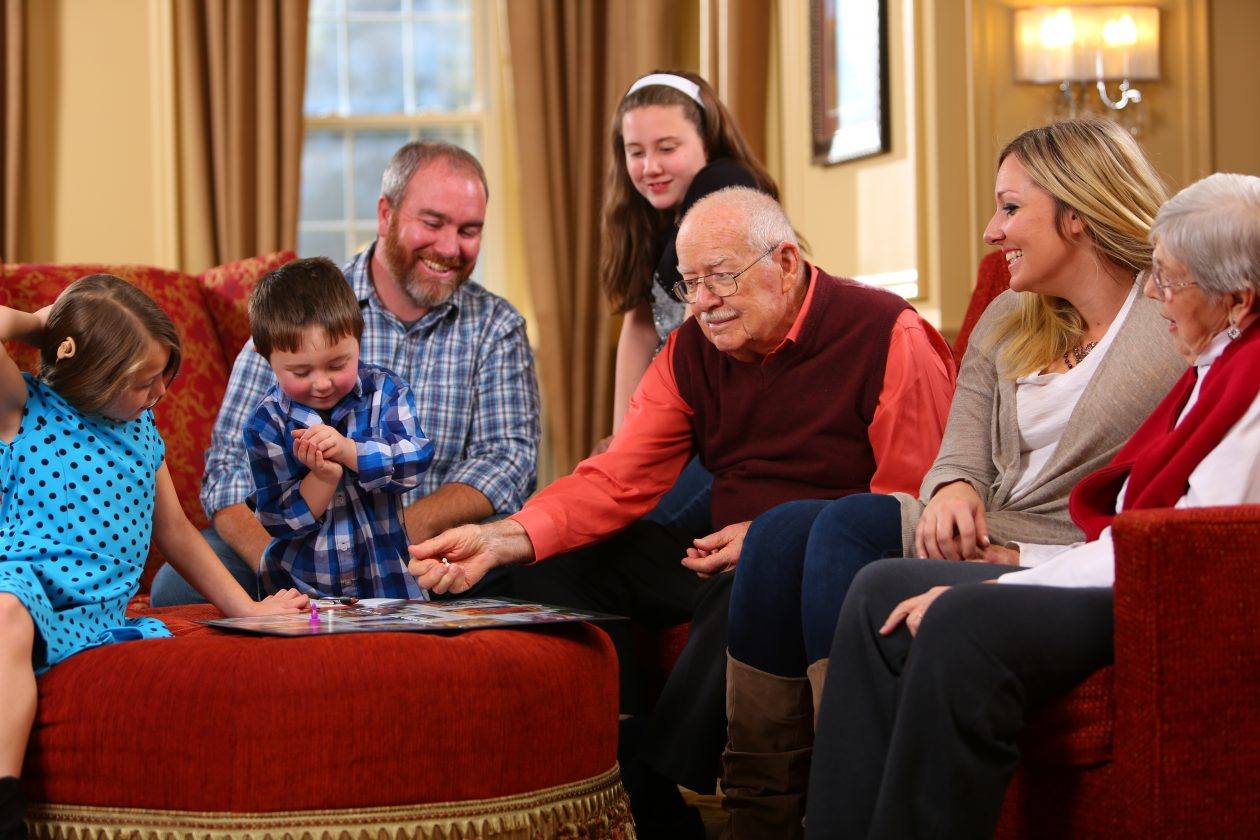November is National Family Caregivers Month, and at Senior Lifestyle we want to acknowledge and honor those who give selflessly of themselves, sharing their time and energy in the care of a family member. Family caregivers play a significant role in the health and comfort of their loved ones, sometimes to the detriment of their own health, but with proper support and self-care their role can be both manageable and meaningful. This year’s National Family Caregivers Month’s theme of “Caregiving Around the Clock” accurately depicts the dedication of family caregivers across the nation, who often juggle the responsibilities of home and work to provide care.
Providing care for a loved one can be stressful; simultaneously holding down a job outside the home can add an extra element of stress to an already difficult balancing act. An estimated 65 million Americans currently provide care for a family member, often balancing work and home responsibilities on a daily basis. Many of these caregivers, especially those providing care for a spouse or significant other, are singlehandedly managing the spectrum of caregiving, from transportation to medication management, with no medical background or training. At Senior Lifestyle we recognize that caregiving, while fulfilling, is also highly physically, emotionally and mentally stressful and can be profoundly frustrating and isolating, even for those with medical training.
The National Alliance for Caregiving, established in 1996, provides support for family caregivers through advocacy, research and the increase of public awareness of issues related to family caregiving. Caregivers can access resources including support programs, financial information and assistance in locating eldercare through the coalition’s website.
Why is National Caregivers Month so important? Caregiving is a tough job and caregiver support is vital to the well-being of both the caregiver and the loved one receiving care. Some facts on caregiving:
- Over half of family caregivers are women
- Most caregivers work outside the home either part-time or full-time in addition to their caregiving responsibilities
- Nearly 70 percent of family caregivers report that they don’t see their doctor regularly because of caregiving duties
What can family caregivers do to cope with their responsibilities?
- Download the Circle of Care Mental Health Toolkit, which covers topics including communicating with health professionals, finding community services providing caregiver support and taking care of yourself.
- Practice self-care. While some caregivers receive the support they need from family members or friends, the primary duties often fall on one person. It is vital for caregivers to learn what works best when they need to rest and recharge. Exercise works for some, while attending caregiver support groups works for others. For many caregivers, the simple act of taking a walk or taking a nap is a great way to regroup.
- Ask for help. If you’re feeling overwhelmed, reach out. For many caregivers, this is the hardest thing to do. Often family members and friends really DO want to be helpful, they just don’t know how. Learn to delegate tasks whenever possible.
When care can no longer be managed at home on a full-time basis, resources such as respite care, adult day centers and senior living communities are available. Senior Lifestyle communities provide respite care as well as assisted living and memory care and our trained community specialists are available to help families navigate the transition to senior living when the need arises. To learn more about senior care options in your area, please visit our website at www.seniorlifestyle.com.

